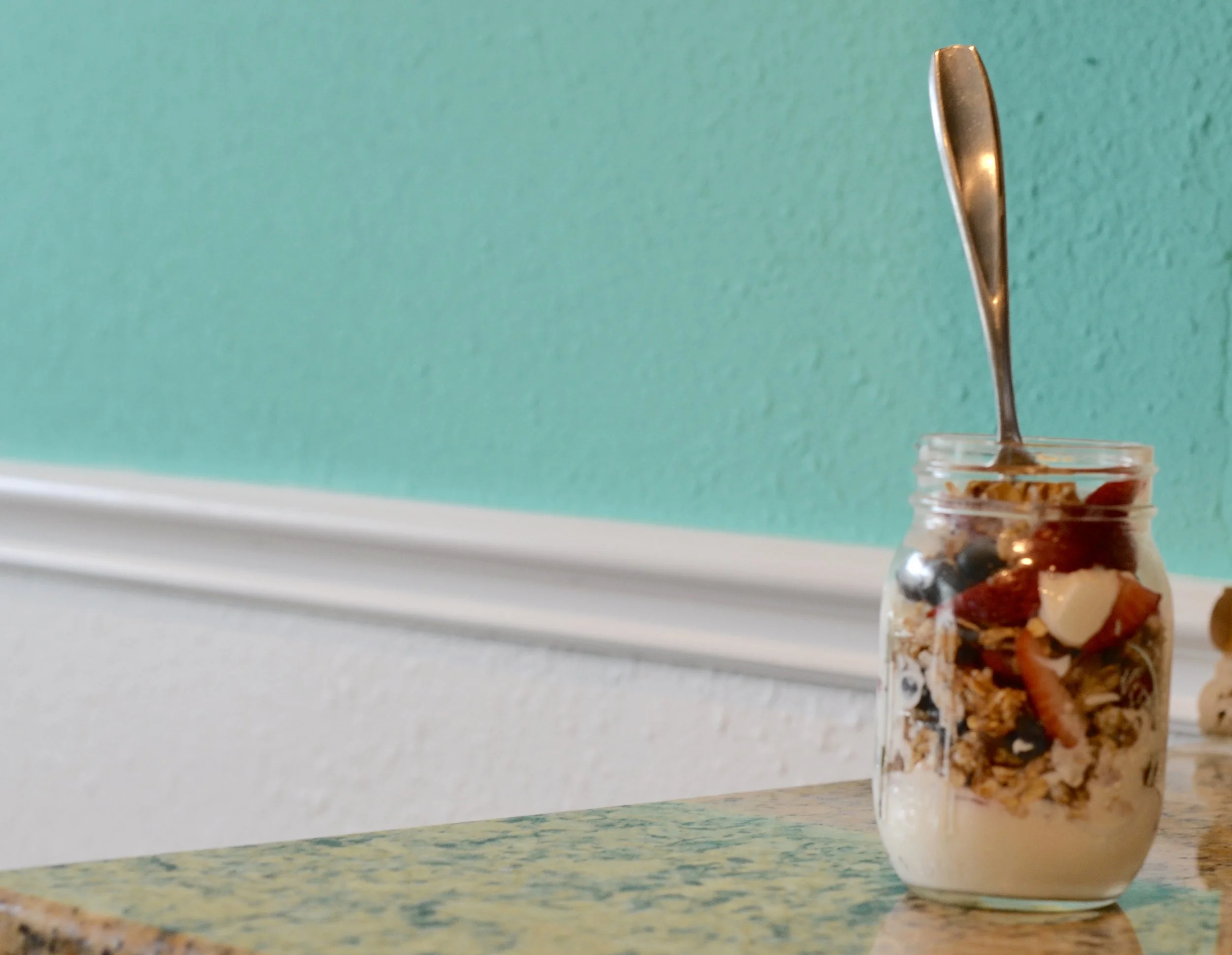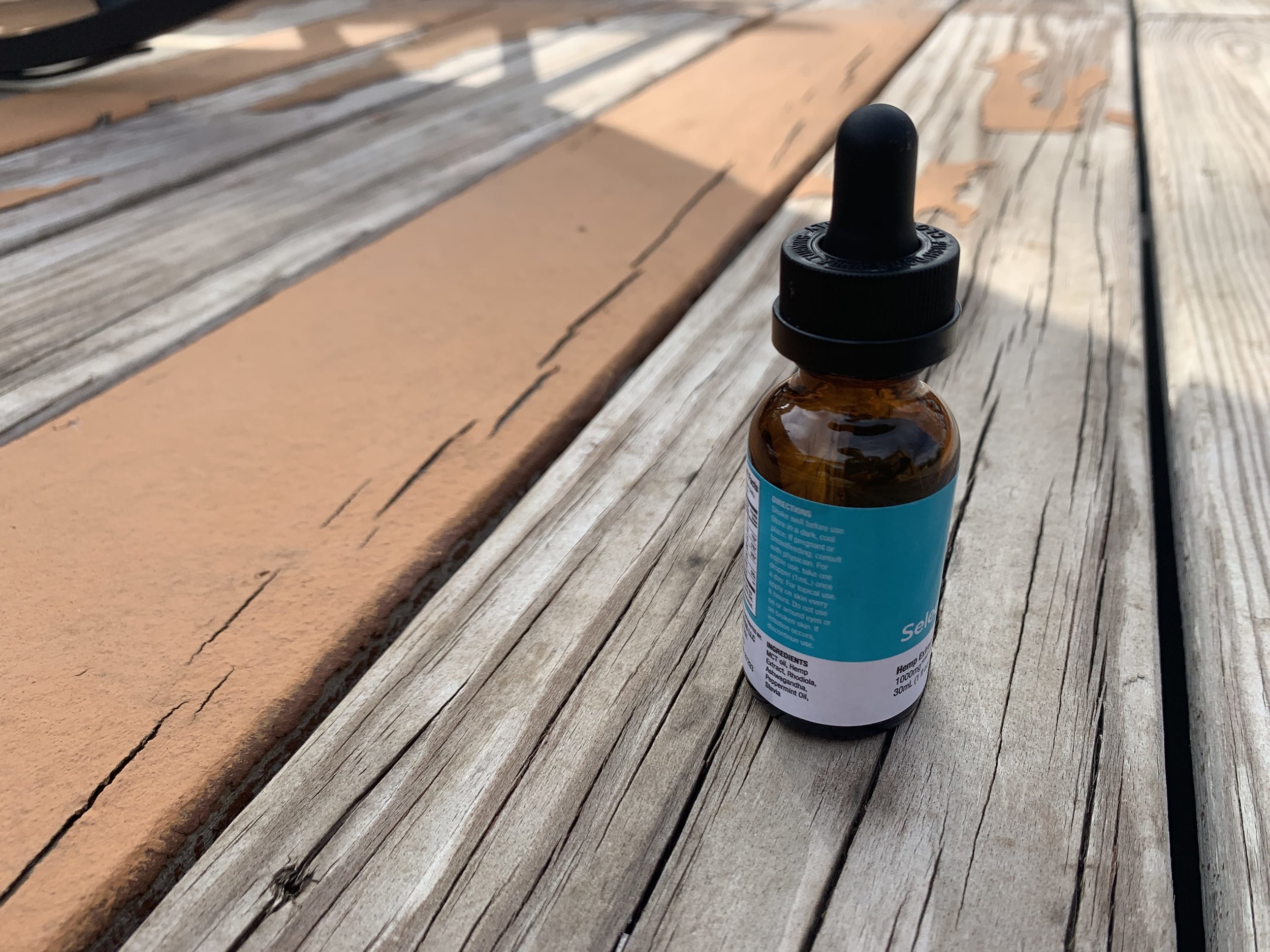Welcome to week two of the gain fitness, not fat nine-week holiday challenge. The goal of the challenge is to use the last nine weeks of the year as a time to build healthy habits that will pay dividends well into the new year. It’s about keeping healthy habits top of mind during the busiest time of the year. You won’t find any restrictive diets or extreme workouts in this challenge, just achievable and straightforward ways to improve your health while still enjoying all that the holidays have to offer.
nine-week holiday challenge. Save to your favorite Pinterest board for later.
Last week we tackled awareness of added sugars in our food. Were there any surprises? This week I’d like you to keep up the awareness of added sugars while you start a new habit. You don’t need to track added sugars anymore if you feel like you have a handle on the added sugars in the foods you eat regularly, just keep in mind the 25 grams or less of added sugar guideline for most days (exceptions permitted).
We are a participant in the Amazon Services LLC Associates Program, an affiliate advertising program designed to provide a means for us to earn fees by linking to Amazon.com.
Challenge Week Two: Eat More Protein
holiday challenge week two. Save to your favorite Pinterest board for later.
Often when we consider how to improve our diets, we are quick to think about all the foods we should give up. It can be especially challenging to attempt to give up unhealthy foods this time of year because junk foods are abundant. Everywhere you turn there’s a cookie, a fruitcake or a salty snack. Instead of stressing about the foods you shouldn’t eat, focus on adding the foods that will improve your health and well being.
Why Do I Need Protein?
Including adequate protein in your meals can help you feel fuller longer after you eat. Protein has a higher thermic effect of food than carbohydrates or fats, which means your body uses more energy (calories) just to digest and process protein. Most importantly protein helps you maintain and build muscle tissue.
Some people discount the importance of protein if they are not trying to build muscle in the gym, but if you are aiming to lose weight, then protein consumption is of utmost importance.
When you lose weight, you want to focus on losing fat only. If you lose muscle while you lose weight you lower your metabolism and increase the chance of putting the weight back on. This is because muscle burns more calories than fat at rest. That means the more muscle tissue you have, the more calories you burn even when you are sitting around watching NetFlix. If you lose muscle, your body doesn’t burn as many calories at rest.
Eating adequate protein (and resistance training) helps ensure that when you lose weight, you are losing fat and maintaining muscle.
How Much Protein Should I Eat a Day?
A good starting point is between .5 - .6 of grams per protein per pound of bodyweight. If you weigh 150 lbs. Aim for between 75-90 grams of protein per day, which is approximately 30 grams per meal.
Adjust your protein intake based on how you feel. Guidelines help you determine a starting point, but nutrition is highly individualized. You may need to increase or decrease based on how you feel and your activity levels. Paying attention to how the foods you eat make you look, feel, and perform is half the battle. This challenge is all about awareness.
How Can I Add More Protein In My Diet?
I recommend getting most of your protein from whole food sources and only supplementing when real foods are not available or convenient.
When building your plate, prioritize protein keeping in mind the daily goal. This can be helpful during large meal gatherings. Eat the protein first, then the vegetables, then if you have any room left, enjoy a treat. ‘Protein first’ is an excellent mantra for holiday meals and gatherings.
A food scale can be helpful in determining proper portion sizes.
Examples of whole-food protein sources:
Meat and poultry = 14-28 grams per 3 oz
Seafood = 14-22 grams per 3 oz
Greek yogurt (plain) = 18 grams per 6 oz
Cottage cheese = 14 grams per 1/2 cup
Pinto Beans = 11 grams per 1/2 cup
Eggs = 6 grams of protein per egg
This is an excellent resource to learn more about the protein content of food from today’s di
Your mission this week is to calculate your protein needs and track your protein grams each day. You don’t need to track every calorie you consume, just take note of the protein grams in the foods you eat each day. You can track in an app, on a piece of paper or in notes on your phone. By tracking, you will increase your awareness, so the challenge stays top of mind.
Prioritize protein at each meal and snack. Look for ways to increase your protein intake. If you fill up on healthy protein sources, you’ll be less likely to fill up on junk.
Are you in? Join our facebook group
Let me know how it goes this week in the group, in the comments or on social media. It’s the small habits when cultivated, that snowball into significant results. Focus on the actions that matter for long-term sustainable success.
Did you like this post? Know someone who might benefit? It helps me when you share with your friends and followers.












If you have questions about running and weight loss, I’ve rounded up the blog posts to help you with answers. Why do I gain weight during marathon training? What to do when your weight loss plateaus from running. Are you running for performance, or running for weight loss? And why it matters that you choose one. I finish my personal story of how I used running as part of my strategy for permanent fat loss.